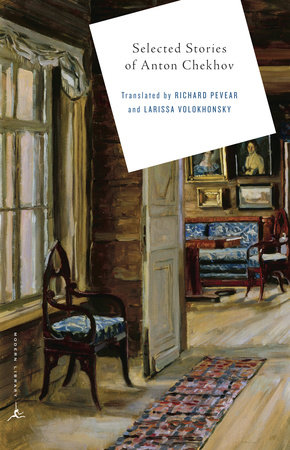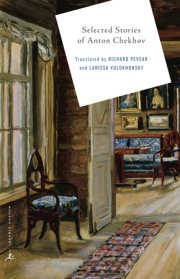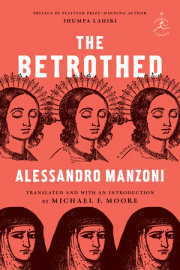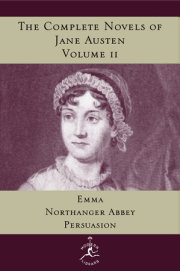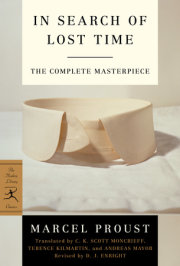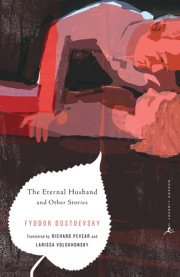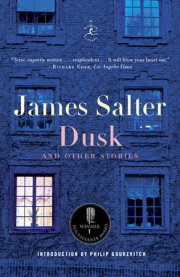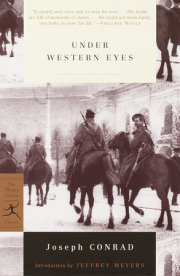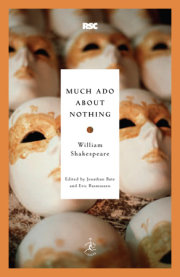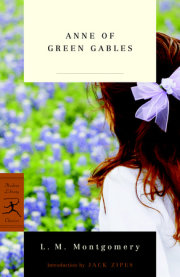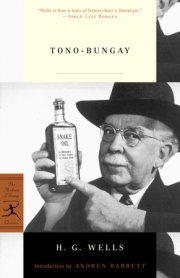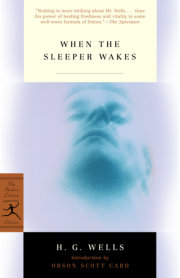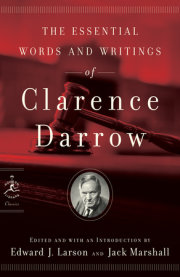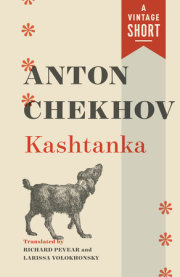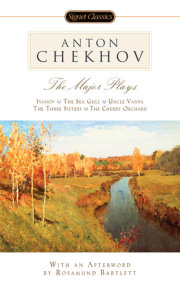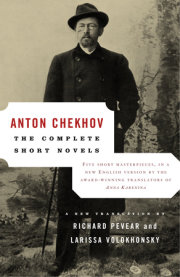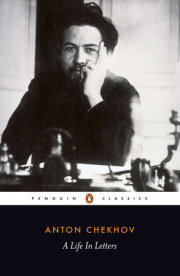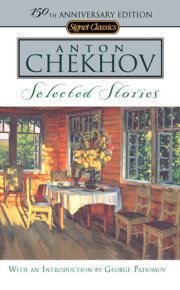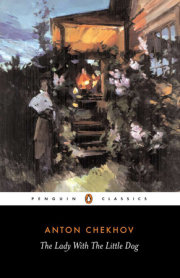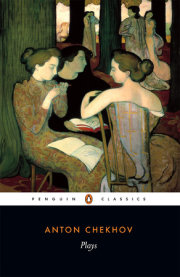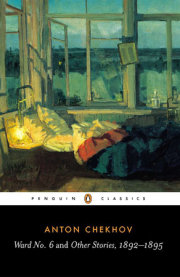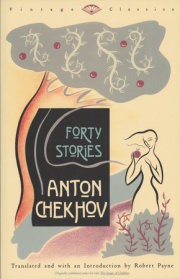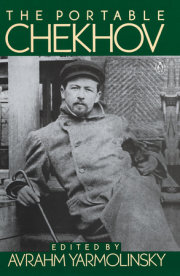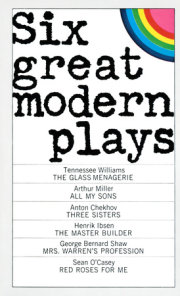The Death of a Clerk
One fine evening the no less fine office manager Ivan Dmitrich Cherviakov1 was sitting in the second row of the stalls, watching The Bells of Corneville2 through opera glasses. He watched and felt himself at the height of bliss. But suddenly . . . This "but suddenly" occurs often in stories. The authors are right: life is so full of the unexpected! But suddenly his face wrinkled, his eyes rolled, his breath stopped . . . he put down the opera glasses, bent forward, and . . . ah-choo!!! As you see, he sneezed. Sneezing is not prohibited to anyone anywhere. Peasants sneeze, police chiefs sneeze, sometimes even privy councillors sneeze. Everybody sneezes. Cherviakov, not embarrassed in the least, wiped his nose with his handkerchief and, being a polite man, looked around to see whether his sneezing had disturbed anyone. And now he did become embarrassed. He saw that the little old man sitting in front of him in the first row of the stalls was carefully wiping his bald head and neck with his glove and muttering something. Cherviakov recognized the little old man as General Brizzhalov,3 who served in the Department of Transportation.
"I sprayed him!" thought Cherviakov. "He's not my superior, he serves elsewhere, but still it's awkward. I must apologize."
Cherviakov coughed, leaned forward, and whispered in the general's ear:
"Excuse me, Yr'xcellency, I sprayed you . . . I accidentally . . ."
"Never mind, never mind . . ."
"For God's sake, excuse me. I . . . I didn't mean it!"
"Ah, do sit down, please! Let me listen!"
Cherviakov became embarrassed, smiled stupidly, and began looking at the stage. He looked, but felt no more bliss. Anxiety began to torment him. In the intermission he went up to Brizzhalov, walked around him, and, overcoming his timidity, murmured:
"I sprayed you, Yr'xcellency . . . Forgive me . . . I . . . it's not that I . . ."
"Ah, come now . . . I've already forgotten, and you keep at it!" said the general, impatiently twitching his lower lip.
"Forgotten, but there's malice in his eyes," thought Cherviakov, glancing suspiciously at the general. "He doesn't even want to talk. I must explain to him that I really didn't mean it . . . that it's a law of nature, otherwise he'll think I wanted to spit. If he doesn't think so now, he will later! . . ."
On returning home, Cherviakov told his wife about his rudeness. His wife, it seemed to him, treated the incident much too lightly. She merely got frightened, but then, on learning that Brizzhalov served "elsewhere," she calmed down.
"But all the same you should go and apologize," she said. "He might think you don't know how to behave in public!"
"That's just it! I apologized, but he was somehow strange . . . Didn't say a single sensible word. And then there was no time to talk."
The next day Cherviakov put on a new uniform, had his hair cut, and went to Brizzhalov to explain . . . Going into the general's reception room, he saw many petitioners there, and among them was the general himself, who had already begun to receive petitions. Having questioned several petitioners, the general raised his eyes to Cherviakov.
"Yesterday, in the Arcadia, if you recall, Yr'xcellency," the office manager began, "I sneezed, sir, and . . . accidentally sprayed you . . . Forg . . ."
"Such trifles . . . God knows! Can I be of help to you?" the general addressed the next petitioner.
"He doesn't want to talk!" thought Cherviakov, turning pale. "That means he's angry . . . No, it can't be left like this . . . I'll explain to him . . ."
When the general finished his discussion with the last petitioner and headed for the inner rooms, Cherviakov followed him and murmured:
"Yr'xcellency! If I venture to trouble Yr'xcellency, it's precisely, I might say, from a feeling of repentance! . . . It wasn't on purpose, you know that yourself, sir!"
The general made a tearful face and waved his hand.
"You must be joking, my dear sir!" he said, disappearing behind the door.
"What kind of joke is it?" thought Cherviakov. "This is no kind of joke at all! A general, yet he can't understand! If that's the way it is, I won't apologize to the swaggerer any more! Devil take him! I'll write him a letter, but I won't come myself! By God, I won't!"
So Cherviakov thought, walking home. He wrote no letter to the general. He thought and thought, and simply could not think up that letter. So the next day he had to go himself and explain.
"I came yesterday to trouble Yr'xcellency," he began to murmur, when the general raised his questioning eyes to him, "not for a joke, as you were pleased to say. I was apologizing for having sneezed and sprayed you, sir . . . and I never even thought of joking. Would I dare joke with you? If we start joking, soon there won't be any respect for persons . . . left . . ."
"Get out!!" barked the general, suddenly turning blue and shaking.
"What, sir?" Cherviakov asked in a whisper, sinking with terror.
"Get out!!" the general repeated, stamping his feet.
Something in Cherviakov's stomach snapped. Seeing nothing, hearing nothing, he backed his way to the door, went out, and plodded off . . . Reaching home mechanically, without taking off his uniform, he lay down on the sofa and . . . died.
July 1883
1. The name Cherviakov comes from the Russian word cherviak ("worm").
2. A popular operetta by French composer Robert Planquette (1843-1903).
3. The name Brizzhalov suggests a combination of bryzgat ("to spray") and briuzzhat ("to grumble").
Copyright © 2000 by Anton Chekhov, translated by Richard Pevear and Larissa Volokhonsky with an introduction by Richard Pevear. All rights reserved. No part of this excerpt may be reproduced or reprinted without permission in writing from the publisher.

